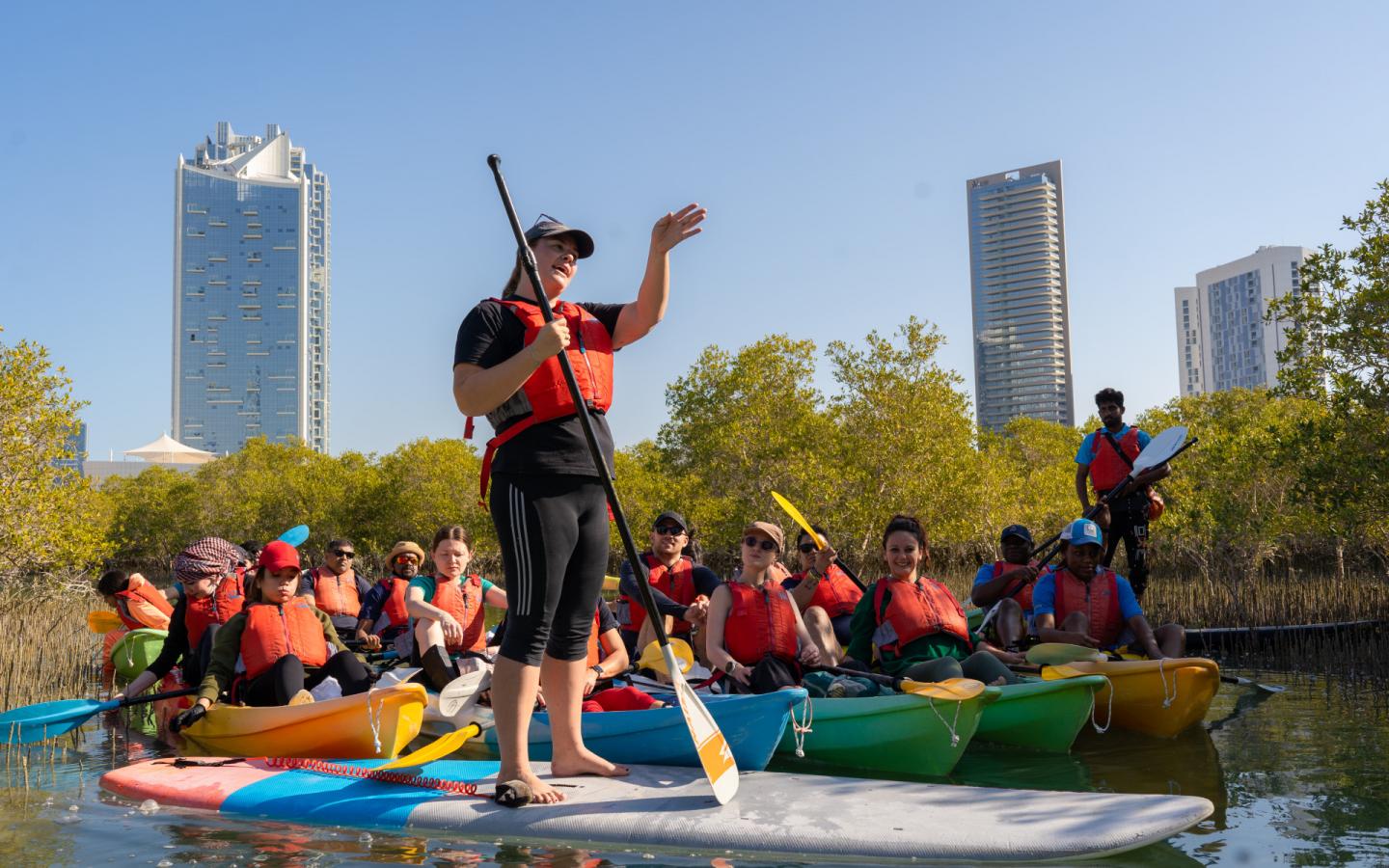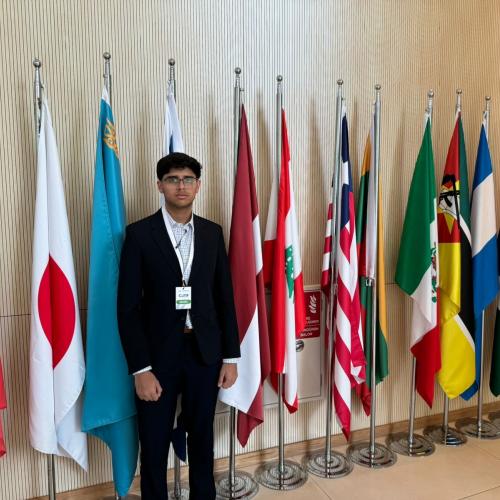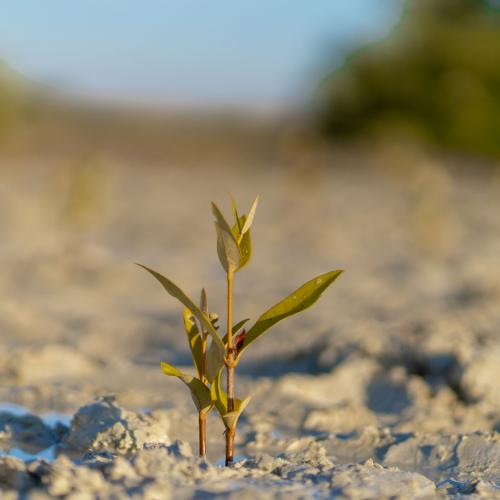Green Careers for today’s Climate Conscious Youth
On International Youth Day, Emirates Nature-WWF’s Arabella Willing reveals the ‘typical workday’ in the field of conservation and explores how UAE youth can make a positive impact on our planet.
Arabella Willing, Associate Head, Conservation Outreach and Citizen Science, Emirates Nature-WWF
Did you know that roughly 75% of the UAE’s population is under the age of 35? Or that nearly half of the country is between the ages of 15 to 35? This sizable group that will soon inherit the world and is already beginning to assume leadership positions across a wide range of professions.
Today’s youth are uniquely aware of the environmental challenges our planet faces, especially from climate change and nature loss. Study after study demonstrates their keen interest in overcoming environmental issues and ushering in an era of sustainability. Our survey of UAE youth found that 94% want to prioritise healing our relationship with nature. But for many, the looming question is “how?”
This topic is the 2023 theme of International Youth Day which calls for the development of ‘green skills’ or the “knowledge, abilities, values and attitudes” required to build a sustainable future.
To shed light on the many ways that young people can develop these skills and start making a positive impact, we interviewed Arabella Willing, a conservation veteran who spearheads community outreach initiatives at Emirates Nature-WWF.

You started your journey in conservation as a marine biologist. Can you tell us more about this field – what’s the typical ‘9-5’ workday for a marine biologist?
AW: I have been extremely lucky in my career to work in glamourous places with beautiful beaches, warm waters and coral reefs, but there are different types of marine biologists. Many work in labs studying microscopic creatures or genetics, or use data collected from remote sensors. I studied in Scotland where the water was really cold, so we tried to avoid getting in the water and relied more on samples collected from boats and technology such as underwater microphones to study the sounds made by the local dolphin population.
In my career, I’ve focused on conserving marine life, not just studying it. Because humans generally cause the problems that affect marine animals, this has involved working with people more than with wildlife.
Not every day is spent out in nature. There is a lot of work to do on the computer, emailing and trying to secure funding, analysing data or writing up results, reading up on the research conducted by other people, and promoting the protection of nature.
My favourite days are definitely the ones where we’re out ‘in the field.’ On field days we usually wake up really early to beat the heat or watch wildlife when it’s most active and undisturbed. We collect data and samples from nature. This could involve taking photos from the same spot over and over again to monitor changes. Or, recording the number of times and types of wildlife we see, such as different species of birds or fish. When we get back from the field, we have to wash all the equipment and input our data which often feels like a drag at the end of a long day in the sun ... but it’s got to be done!
You’ve worn a lot of hats in conservation. What does your current role in Conservation Outreach and Citizen Science entail?
AW: I’m a “people person” and have always relished opportunities to share my love of the ocean (and its inhabitants) with others. I’m constantly, enthusiastically, telling the people around me fun facts about what they’re seeing when they’re on the beach, snorkelling or kayaking.
I think it’s incredibly important that science and conservation is inclusive, and that as many people as possible are considering nature in their decision making.
This has led me to spend a lot of my time working in community engagement and involving the public in my conservation work. I now lead “Conservation Outreach and Citizen Science” at Emirates Nature WWF, which essentially means I develop ways for anybody and everybody to be involved in our work.

How can youth get more involved in conservation?
AW: It’s important to realise that taking care of nature and the environment is not ‘someone else’s problem.’We are all responsible. We can make more sustainable choices in our daily lives, encourage friends and family to join us, and start placing nature first in our homes, schools and workplaces.
Every profession has an impact on our planet, quite literally. With passionate, committed people that impact can be a positive one.
Yes, we need scientists in conservation. But we also need artists and talented storytellers to inspire others. We need engineers and designers to build nature positive alternatives. We need lawyers to represent living things that can’t speak for themselves. We need finance professionals to help us value nature so that we can secure funding and investments in nature solutions. We need teachers to share knowledge with the young and old.
My advice is to lean into what you enjoy and find a way to use your talents to make the world a better place. Because there is always a way.
Regardless of the profession you go into, it’s helpful to make sure you are well informed about the state of the environment and where the biggest changes are needed. If you can, take courses in environmental studies at your school or university.
For those who have already completed their studies, is there a pathway to embark on a new career in nature preservation or climate change, that does not require further education?
AW: Absolutely, experience is just as important as theoretical knowledge. Do what you can from where you are. Volunteering and attending free events, citizen science trips or talks is a great way to network and meet people who might be able to guide or mentor you. Citizen science is a great way to build your skills, knowledge and understanding, while joining experts in the field and helping them with their work!
You can also get started by joining our youth movement Connect with Nature and participating in our Ambassadors for Nature programme.
As part of the programme, the Environment Agency - Abu Dhabi and Emirates Nature-WWF are organizing free e-learning and training sessions as well as field trips led by experts in conservation. You will also have the chance to learn from Youth Insiders, young professionals in the UAE who are already championing sustainability in their workplaces across finance, FMCG, architecture, fashion, energy, transport, hospitality, retail, waste and agriculture.
We are currently searching for the next group of youth Ambassadors for Nature, who will join an exclusive 3-day training to learn new skills, work on climate solutions and represent the youth voice at national and international events including COP28 – the global United Nations climate change conference which will take place in Dubai later this year.
It’s an incredible opportunity open to UAE residents and citizens who are between the ages of 18-35 – you can apply or learn more here.
Does prior volunteering experience or participation in conservation field trips help while applying for colleges or jobs in conservation?
AW: Definitely! It’s also a great way to meet likeminded people and check that it’s the right path for you. Certainly, when I’m hiring, I look for proactive people who can use their initiative and don’t mind getting their hands dirty in the field! It’s reassuring if a candidate can demonstrate that they have a bit of experience in that regard.
Follow @connectwithnature.ae on Instagram to stay up to date on the latest youth initiatives taking place this year – the Year of Sustainability and UAE hosting COP28. Our climate-themed escape room will resume its tour of the nation after the summer, and more activities will be announced as COP28 approaches.
The global climate change conference will take place at Expo City Dubai from 30 November to 12 December 2023 and includes a special Green Zone that is open to everyone. That’s practically next door – we encourage you to visit and explore the different ways society is addressing climate change.



